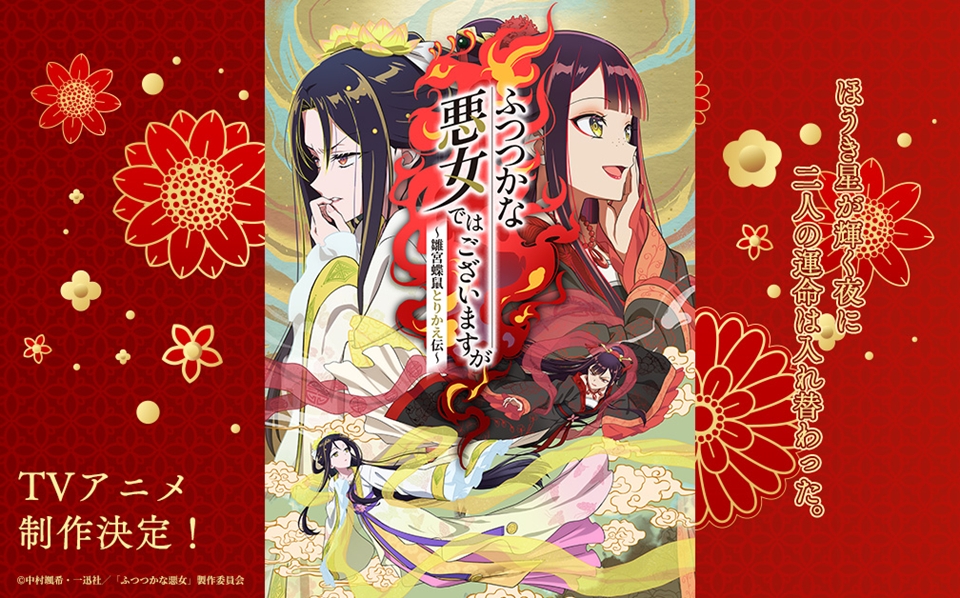Anime has been a part of my life for as long as I can remember, and it’s been a huge part of AAPI culture for even longer. As someone who remembers going to Anime Expo when it was still held in Long Beach, it’s strange to see just how huge anime is now – mainstream even! It fills me with an odd sense of pride because I know the part the AAPI community has played in making anime the worldwide phenomenon that it is today. Back when it was still a niche medium, so many of us were spreading the word about Asian media in our own way – dragging friends to the nearest import stores (shoutout to Tokyo Japanese Lifestyle on Sawtelle!) to marvel at all the anime figures, rocking the Domo-kun T-shirts and trucker hats, and sharing copies of whatever anime or manga we had at home with anyone who pointed to our pencil case and asked, “Who’s that?” For many of us, being ambassadors for anime and manga wasn’t even intentional. They were the comics available at the stores our parents shopped at, they were the cartoons we watched with our relatives abroad when we visited every summer. That's why this year, for AAPI Heritage Month, we wanted to celebrate the impact that anime has had on us and, in return, the impact that the AAPI community has had on anime fandom in the US. And, of course, we wanted to tell that story in the most fitting way… through illustration! We hope you enjoy stories from four Asian-Americans who have done the impossible – made anime a job our parents can be proud of! NOTE: All artwork was created by Jenny Wang (Squishy’s Studio) to illustrate the stories told. Be sure to check out more of Jenny's artwork via Instagram . Emi Lo English voice of Maomao ( The Apothecary Diaries ), Lucy ( Cyberpunk: Edgerunners ) Han Song-Yi ( Solo Leveling ) and more Artwork by Jenny Wang (Squishy's Studio) RELATED: How The Apothecary Diaries Explores the Beautiful Nuances in Female Relationships Emi Lo, like a lot of fans, discovered anime at a young age, but along with being a form of entertainment, anime was also a way to connect with family. “From Yu Yu Hakusho when I was maybe five years old, to Yu-Gi-Oh! in middle school, anime has helped me bond with my extended Asian family.” “I grew up in the US during a time when people were bullied for liking anime, but whenever I traveled overseas to see my extended family, we'd watch it on TV together,” Emi says. “I even recall sticking stickers all over the place before I knew what it really was.” Emily Ghoul Singer-songwriter, actress, model Artwork by Jenny Wang (Squishy's Studio) RELATED: 10 Anime Moments That Will Totally Make You Cry Much like Emi Lo, Emily Ghoul also discovered anime (and manga) early. “It all started with a dusty copy of D.N.Angel that I stumbled upon in a random bookstore back in middle school. One flip through those pages and boom — addiction!! Anime, manga, manhwa?? Say less.” Emily continues by discussing the emotional attachment many of us feel to these characters. “I was that kid, hiding away during lunch with a book in hand, devastated over characters that didn’t technically exist. Naruto and Hunter x Hunter gave me my first taste of heartbreak and perseverance. Fairy Tail made me believe in friendship (and maybe magic), while Attack on Titan and JUJUTSU KAISEN … well, they taught me one key lesson: never get attached. Ever. (I’m fine…)." That passion still exists today for Emily. "Fast forward 15+ years, and anime has basically taken over my life — in the best way possible. Some of my closest friends in the AAPI community are friends I’ve made through my love for anime! It’s shaped my career, dragged me into martial arts classes, got me obsessed with design, and even tricked me into learning about IP licensing.” Bao Nguyen Senior Accountant at Crunchyroll Artwork by Jenny Wang (Squishy's Studio) RELATED: How to Watch Cardcaptor Sakura in Order “When I was younger, I struggled with my identity—adrift between two worlds, not quite belonging to either American or Vietnamese,” says Bao Nguyen as she thinks back to her childhood. “I grew up in a predominantly white town, where being Asian often meant being different in a way that felt isolating. I tried to blend in, to reshape myself into someone who could belong, but it always felt like wearing a mask that didn’t fit.” Bao goes on to say that things changed after discovering anime, more specifically, Cardcaptor Sakura . “Everything changed the first time I stumbled upon Cardcaptor Sakura . I still remember the moment — the flicker of the screen, the burst of color, and the sound of Sakura Kinomoto’s cheerful voice calling out spells in Japanese. Cardcaptor Sakura is a magical girl anime that follows a young girl who accidentally releases a set of mystical cards and is chosen to retrieve them to prevent chaos. Along the way, she discovers strength, friendship, and love, all while balancing the everyday trials of childhood. The animation was vibrant, the story heartfelt, and the characters, though fantastical, felt so real.” “What struck me the most were the cultural details — the way Sakura removed her shoes before entering her home, the respectful way she spoke to elders, the importance of family, and even the foods they ate,” Bao says. “It reminded me of my own Vietnamese upbringing: the quiet rituals of daily life, the unspoken values of respect and community, the warmth of shared meals. For the first time, I saw a reflection of my culture—not through a direct mirror, but through something close enough to feel familiar and comforting. It wasn’t just a show. It was a lifeline." " Cardcaptor Sakura helped me reclaim pride in who I was. It showed me that the things that made me different were not weaknesses — they were magic. Through anime, I connected with others who shared similar backgrounds or passions, and for the first time, I felt like I wasn’t alone.” Kristine Don Senior Manager, Audience Development at Crunchyroll Artwork by Jenny Wang (Squishy's Studio) RELATED: The 5 Most Emotional Naruto Moments According to Fans To wrap things up, I’d like to share my own story. When I was a kid, long before the era of streaming, my dad would bring me copies of Naruto when he would visit from Hong Kong every couple of months. I was so excited every time he dropped off another 25 episodes for me. I would invite all my friends over on Saturday morning to watch them together. After we finished, we'd re-watch them over and over again until my dad dropped off the next batch of episodes. Anime has brought me a lot in life — comfort, community, a career — and, most surprisingly, it gave me a tremendous amount of pride in my AAPI identity. In a time when being Asian wasn't exactly cool, here were stories from my family's side of the world that were undeniably cool, full of faces, families, food, and fashion that I recognized and looked like mine.


